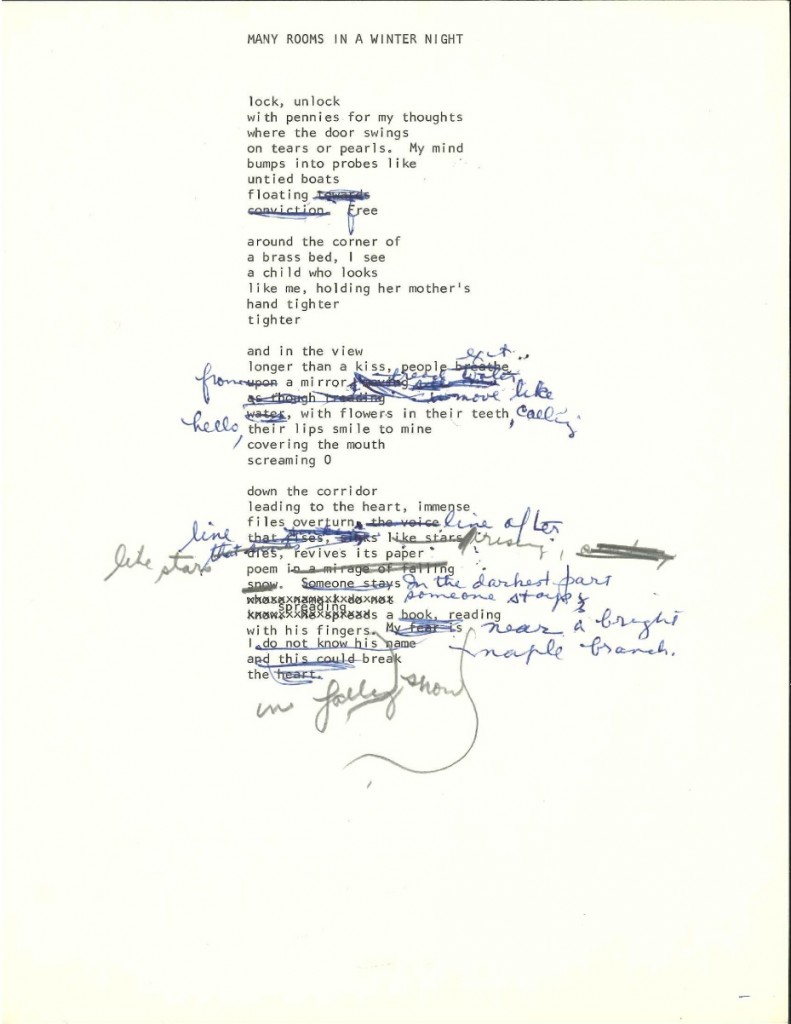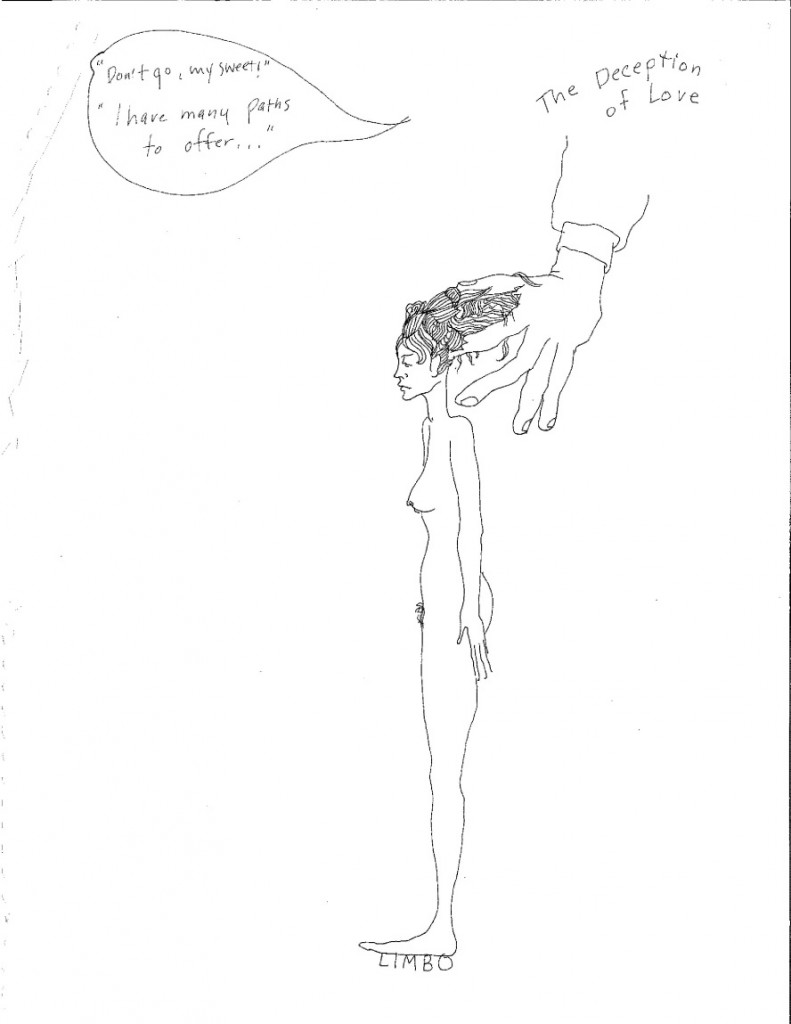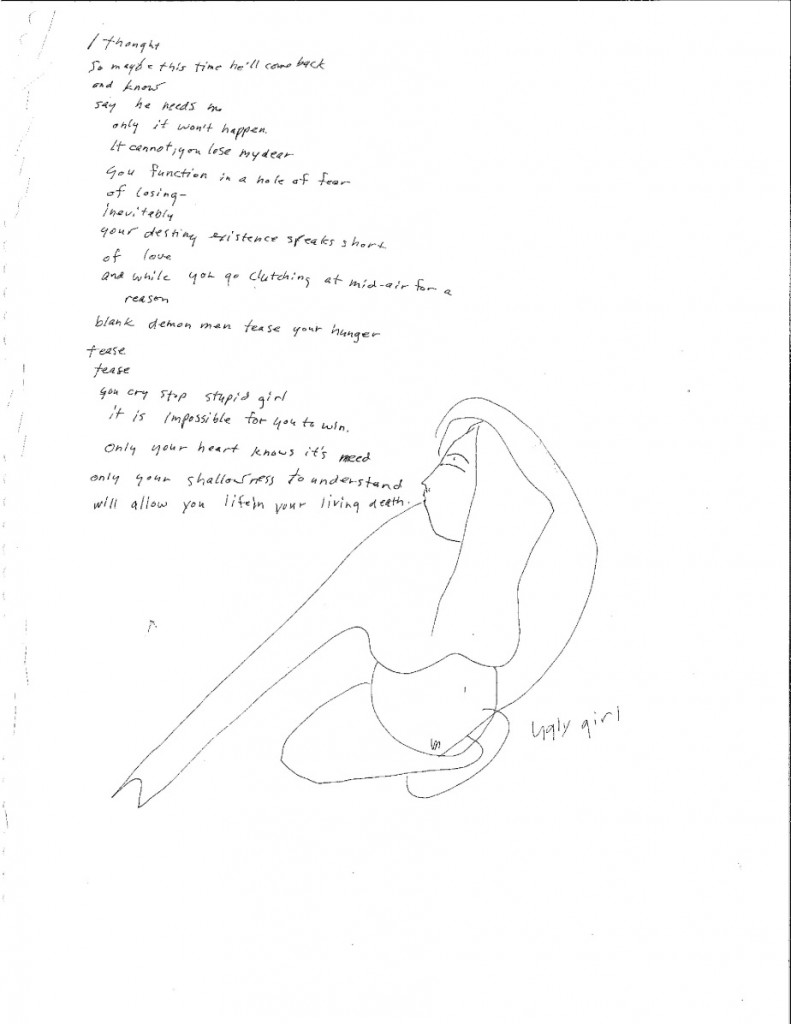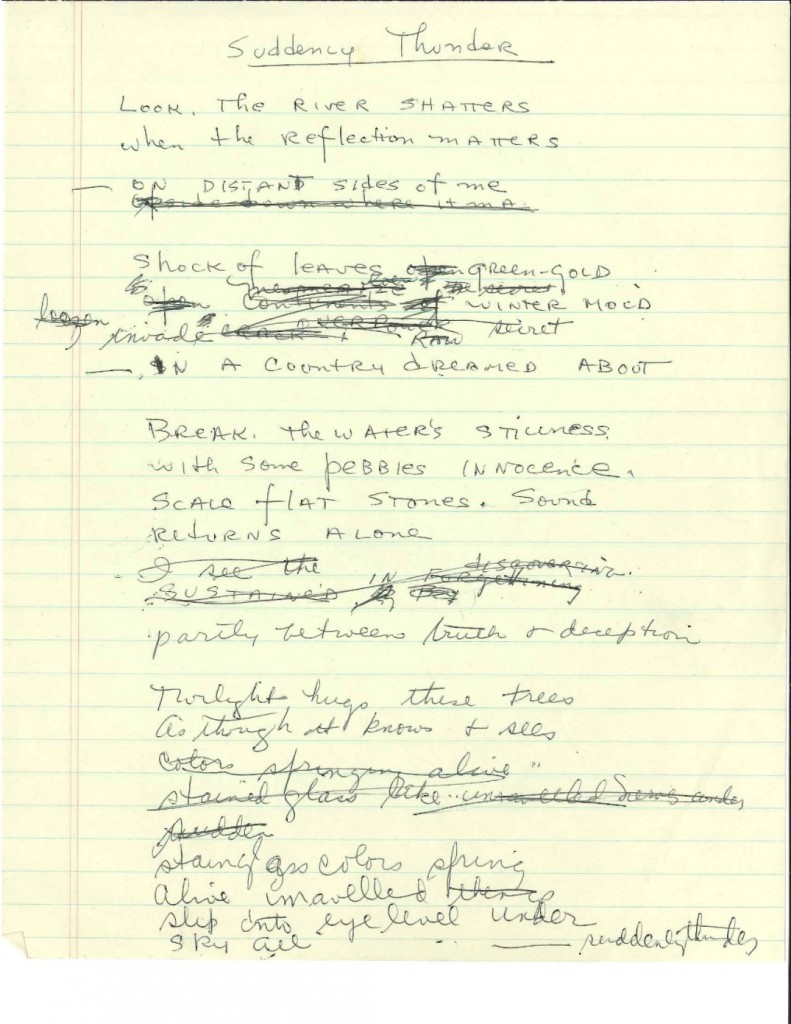For those who do not know, April is National Poetry Month. In celebration of the occasion, I delved into the Women & Leadership Archives’ collections to find records and personal papers concerning women’s contributions to the arts, particularly the written word. As close followers of the Women and Leadership Archives know, our collections feature the creative pursuits of remarkable female performers, artists, sculptors, and patrons, both past and present. In fact, check out the WLA’s digital collection Visions: A Highlight of Chicago Women Artists for a more detailed sampling of the materials we hold regarding these talented female artists.
Along with preserving the records and papers of women in performance and the fine arts, the Women & Leadership Archives also holds the records of famous poetesses as well as numerous poems featured in feminist newspapers. The first, Ruth Lisa Schecter, published several books of poetry including Near The Wall of Lion Shadows, Moveable Parts, Suddenly Thunder, and eight others. Her writings were also published in more than one hundred and fifty journals. In addition to actively writing throughout her adult life, Schecter was also passionately involved in spreading the influence of poetry through Arts Councils and colleges. Schecter served as the poet-in-residence at Mundelein College* beginning in 1969.
The second poet, Renny Golden, combined her love for writing with a passion for social activism. Her best known book of poetry The Hour of the Furnaces articulates the suffering of many citizens of Central American countries in the tumultuous years of the 1980s, when several countries fought civil wars against militaristic regimes. This work earned a nomination for the National Book Award in 2000.
Additionally, the WLA preserves numerous anonymous submissions of poetry from The Feminist Voice, one of Chicago’s first feminist newspapers that began during the 1970s. See below for some examples of these anonymous pieces as well as a sampling of some of the amazing offerings created by our other profound poetesses.
This image from the Connie Kiosse Papers was submitted by an anonymous artist and poet. The marriage of words and illustration provide a provocative image of the contributor’s views on romantic love.
Another anonymous submission from the Connie Kiosse papers, this poem with accompanying illustration depicts the author’s personal struggle with a failing relationship and her tumultuous emotions associated with it. The poem makes powerful reference to the role of self-esteem as it intersects with modern womanhood.
These two images depict an early draft of Ruth Lisa Schecter’s titular poem for her book, Suddenly Thunder and another one of her poems “Many Rooms in a Winter Night.” Examining drafts of Schecter’s work allows researchers to view the artist’s creative process as she composes a work from beginning to end.

Revision of one of Schecter’s later poems “Many Rooms in a Winter Night,” 1989. Ruth Lisa Schecter Papers.
*Mundelein College, founded and operated by the Sisters of Charity of the Blessed Virgin Mary (BVM), provided education to women from 1930 until 1991, when it affiliated with Loyola University Chicago. The Women and Leadership Archives (WLA) at Loyola holds the records of Mundelein College.
Ellen is a Graduate Assistant at the WLA and is in the first year of her M.A in Public History at Loyola University Chicago. Before moving to Chicago, Ellen was a Kindergarten teacher in Louisiana. She enjoys brunch, procedural dramas, and pugs.
Loyola University Chicago’s Women and Leadership Archives Blog is designed to provide a positive environment for the Loyola community to discuss important issues and ideas. Differences of opinion are encouraged. We invite comments in response to posts and ask that you write in a civil and respectful manner. All comments will be screened for tone and content and must include the first and last name of the author and a valid email address. The appearance of comments on the blog does not imply the University’s endorsement or acceptance of views expressed.



